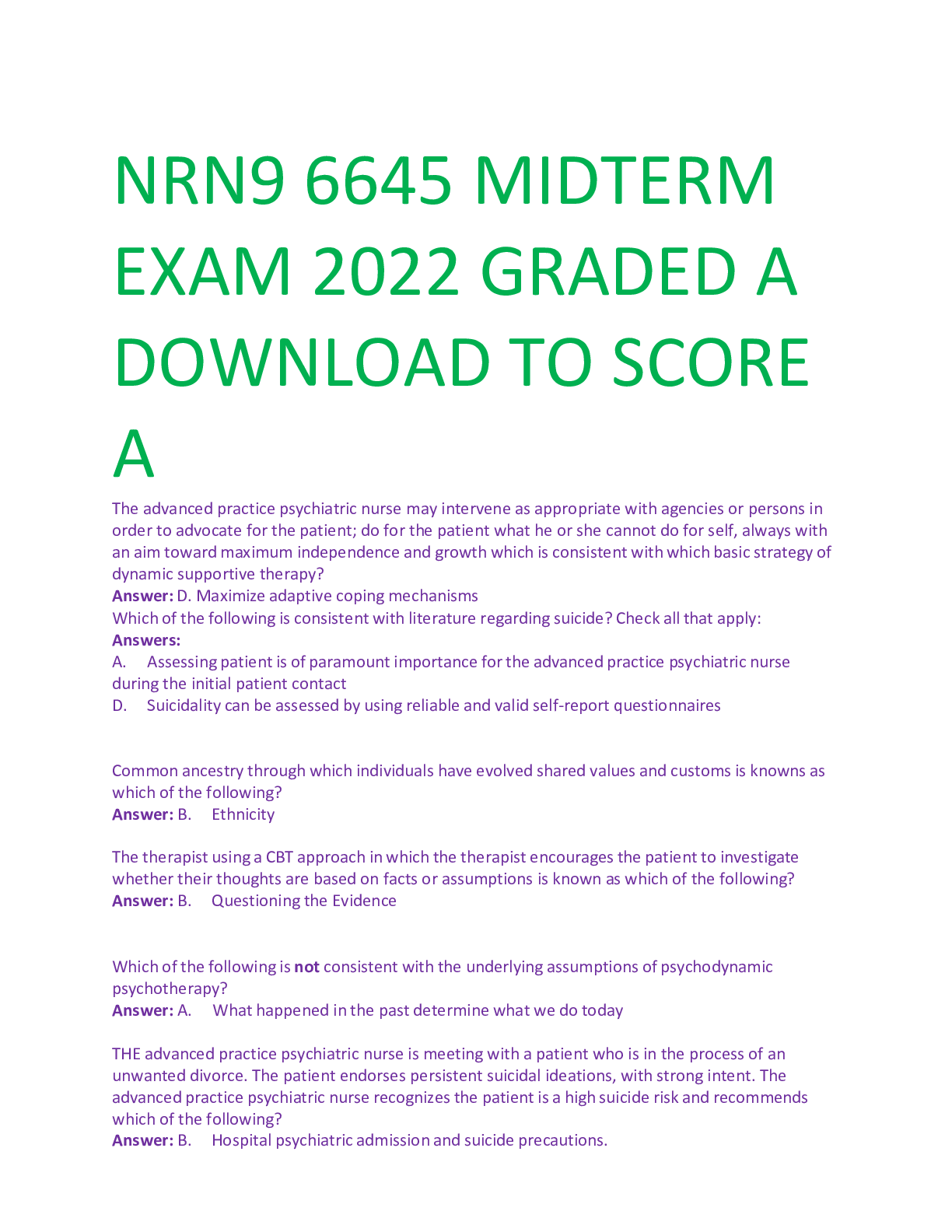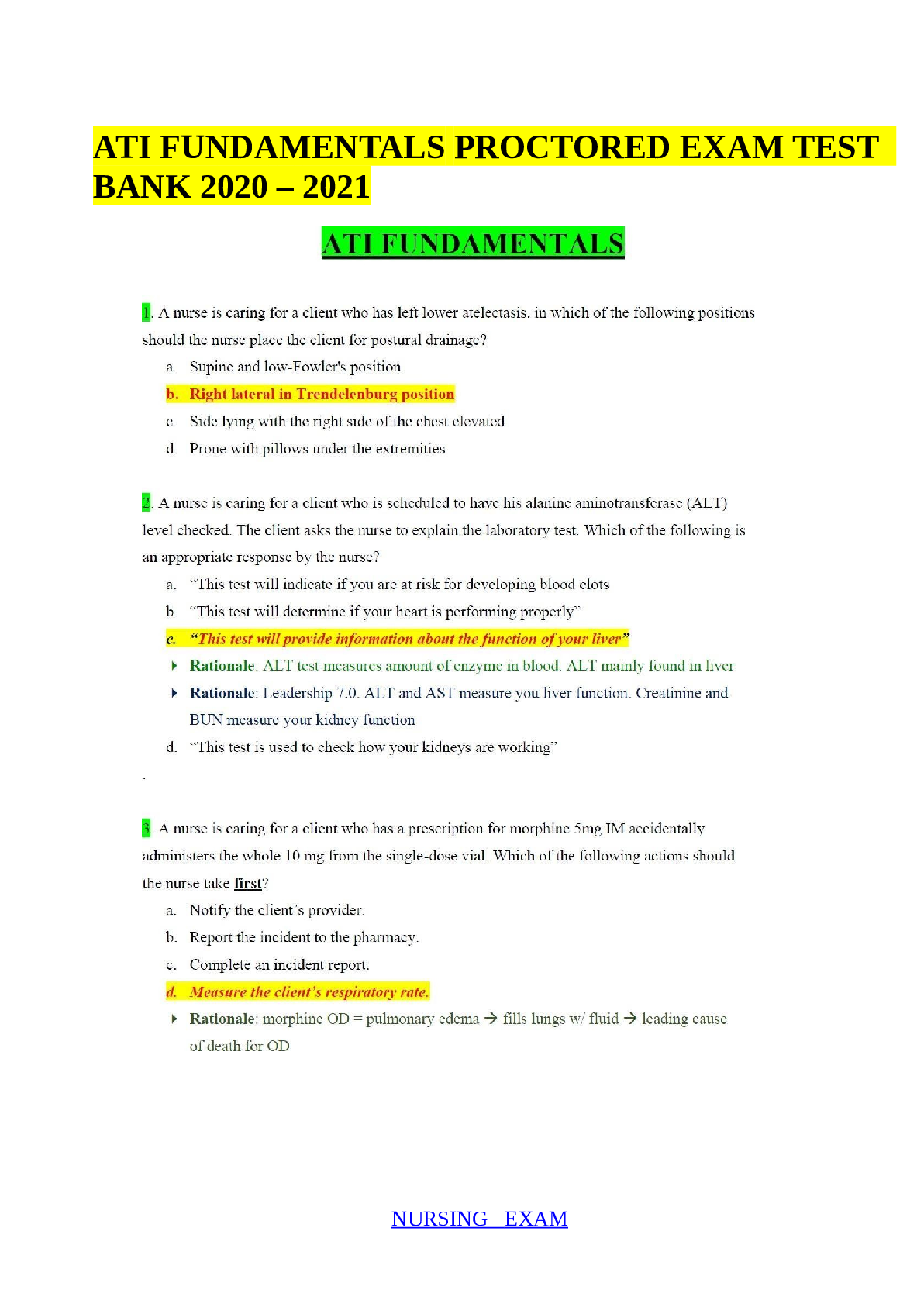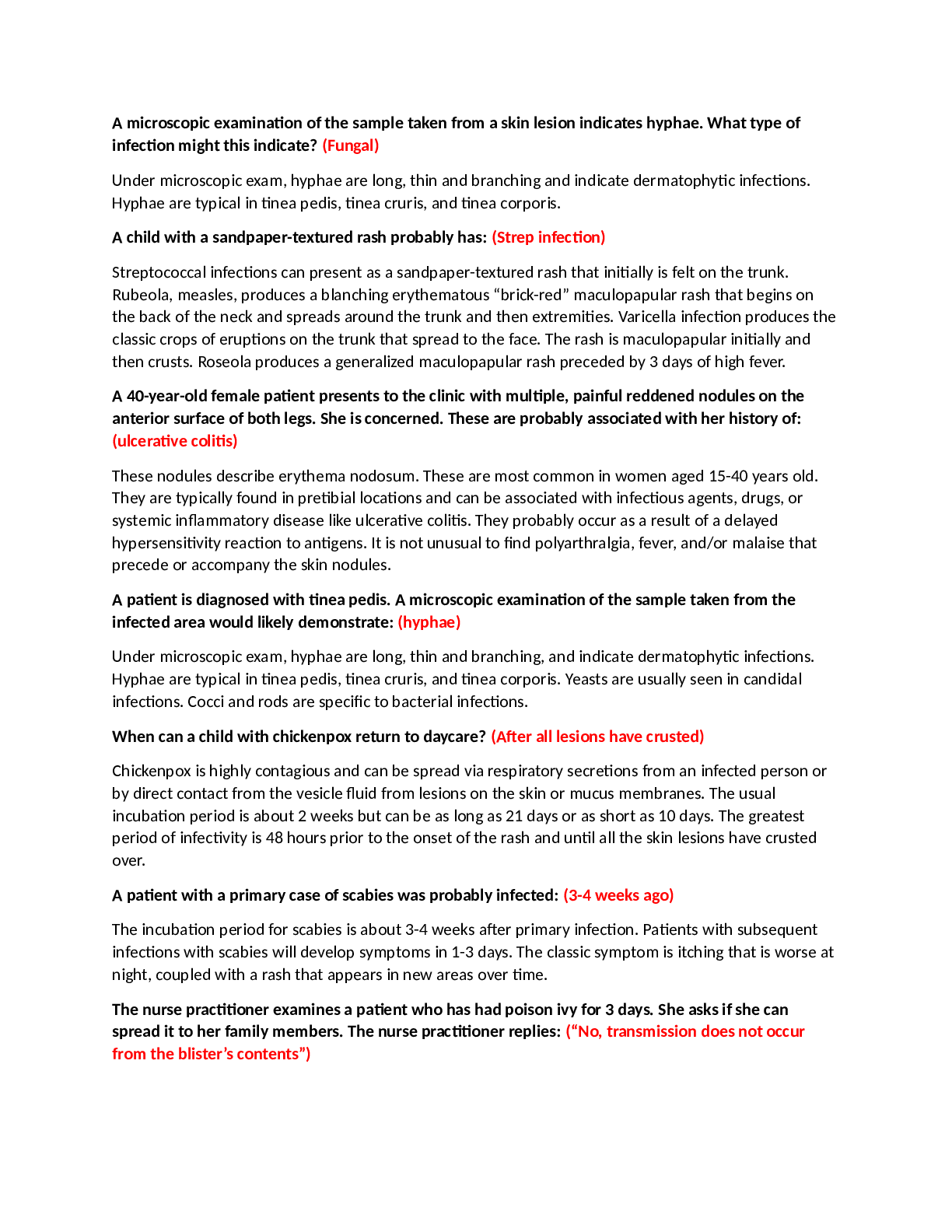Physics > EXAM > PYC3703 Test bank Questions and Answers 12 Chapters of 70+ questions each Chapter 1 TEST BANK (All)
PYC3703 Test bank Questions and Answers 12 Chapters of 70+ questions each Chapter 1 TEST BANK
Document Content and Description Below
PYC3703 Test bank Questions and Answers 12 Chapters of 70+ questions each Chapter 1 TEST BANK 1. Which of the following would not be studied by a Cognitive Psychologist? a. whether people can pay... attention to multiple stimuli at once without losing accuracy b. if advertising using animation is more memorable than advertising using no animation c. whether a group of people present affect how much is given to charity d. if the reading speed of college graduates differs from that of high school graduates ANS: c 2. The combination of rational with empirical methods so as to get the “best of both worlds” represents, in dialectical terms, a(n) a. thesis. b. antithesis. c. synthesis. d. antisynthesi s. ANS: c 3. Part of dialectic thinking is when a statement of belief is proposed. This statement would be called the . a. antithesis b. synthesis c. thesis d. pragmatic s ANS: c 4. This part of dialectic thinking is when a counterstatement to previous beliefs emerges. This counterstatement would be called the . a. antithesis b. synthesis c. thesis d. pragmatic s ANS: a 5. The philosopher who advanced the notion of a dialectic was . a. Plato b. Hegel c. Descartes d. Aristotl e ANS: b 6. A rationalist a. uses logical analysis to understand the world and people’s relations to it. b. is a follower of Aristotle’s empiricist philosophy. c. supports the idea of monism. d. believes that knowledge is acquired through experience and observation. ANS: a 7. Rationalism is to as empiricism is to . a. empirical evidence; theory b. theory; empirical evidence c. manipulation; measure d. hypothesis; theory ANS: b 8. This particular approach emphasizes logical analysis as the means to acquiring new knowledge. a. Tabula rasa b. Synthesis c. Rationalist d. Empiricis t ANS: c 9. An empiricist a. believes that knowledge is acquired through experience and observation. b. is a follower of Plato’s rationalist philosophy. c. supports the idea of mind-body dualism. d. believes that the mind and the body are separate entities. ANS: a 10. This particular approach emphasizes empirical evidence as the means to acquiring new knowledge. a. Rationalist b. Monist c. Empiricist d. Nativis t ANS: c 11. Theresa, a judge, does not accept circumstantial evidence as evidence in her court. Theresa will not convict anyone of a crime, based on general principles of anticipated behavior of people brought to court. Instead, Theresa allows only evidence that she can see, or “hard,” observational evidence, to be used in a prosecution. Theresa could be referred to as a(n) a. Monist b. Empiricist c. Rationalist d. Nativis t ANS: b 12. Elma, an aut [Show More]
Last updated: 2 years ago
Preview 1 out of 231 pages

Buy this document to get the full access instantly
Instant Download Access after purchase
Buy NowInstant download
We Accept:

Reviews( 0 )
$18.00
Can't find what you want? Try our AI powered Search
Document information
Connected school, study & course
About the document
Uploaded On
Jul 15, 2022
Number of pages
231
Written in
Additional information
This document has been written for:
Uploaded
Jul 15, 2022
Downloads
0
Views
58





.png)
.png)











.png)





